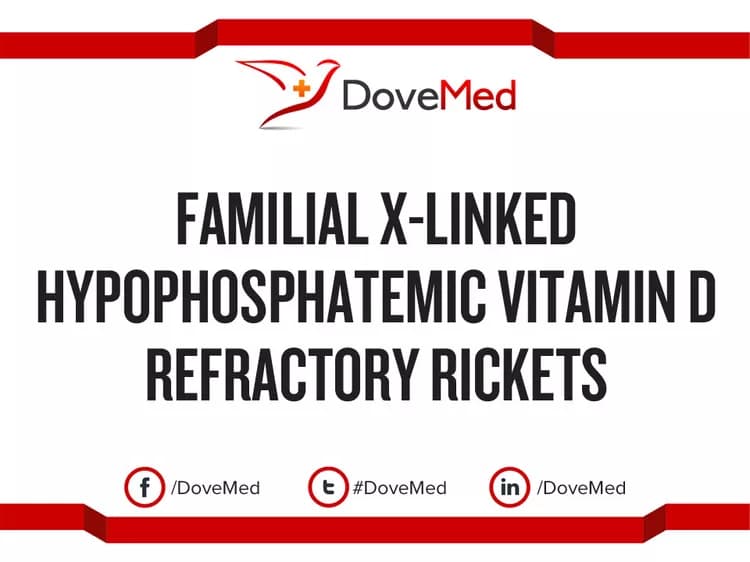
Familial X-Linked Hypophosphatemic Vitamin D Refractory Rickets (Disorder)
The topic Familial X-Linked Hypophosphatemic Vitamin D Refractory Rickets (Disorder) you are seeking is a synonym, or alternative name, or is closely related to the medical condition Familial Hypophosphatemia.
Quick Summary:
- Familial Hypophosphatemia is a very rare, inherited, genetic disorder. Medical professionals often use the term X-Linked Hypophosphatemia (XLH), to describe the condition
- Familial Hypophosphatemia belongs to a group of disorders, called genetic hypophosphatemic rickets (HR). In this disorder group, there is an inappropriate wasting of phosphate by the kidneys, combined with a low to normal 1,25-dihydroxyvitamin D3 (1,25(OH)2D) serum blood level
- Of the many types of HR, the most common type is called X-Linked Dominant Hypophosphatemic Rickets (XLHR). Since, the gene mutation occurs on the X chromosome, it is called an X-linked disorder
- Familial Hypophosphatemia is caused by a mutation in the PHEX gene, leading to defective/inactive PHEX protein. Due to this defective protein, there is impaired transportation of phosphate, causing low phosphate levels in the body
- Phosphate is needed in the body to create strong and healthy bones. This is especially important as a child grows. The lack of phosphate in the body, results in the formation of weak bones; this weakening is called osteomalacia
- Weak bones and abnormal growth of bones in a child results in physical abnormalities, such as deformities of the legs (bowed legs) and short stature. Bowed legs are called ‘genu varum’ by medical professionals
- Familial Hypophosphatemia (or XLH) has symptoms similar to the genetic disorder ‘autosomal dominant hypophosphatemic rickets’ (ADHR). ADHR is even rarer than Familial Hypophosphatemia, and is caused by specific mutations in gene ‘FGF23’ (fibroblast growth factor 23), which is located on the short arm (p) of chromosome 12 (12p13.3)
- XLH most frequently occurs as an X-linked inherited trait; though, in rare cases, autosomal dominant and recessive forms have also been reported
Familial Hypophosphatemia/XLH is classified into three subdivisions:
- Autosomal dominant hypophosphatemic rickets (ADHR)
- Autosomal recessive hypophosphatemic rickets
- X-linked hypophosphatemic rickets
Please find comprehensive information on Familial Hypophosphatemia regarding definition, distribution, risk factors, causes, signs & symptoms, diagnosis, complications, treatment, prevention, prognosis, and additional useful information HERE.
Related Articles
Test Your Knowledge
Asked by users
Related Centers
Related Specialties
Related Physicians
Related Procedures
Related Resources
Join DoveHubs
and connect with fellow professionals

0 Comments
Please log in to post a comment.